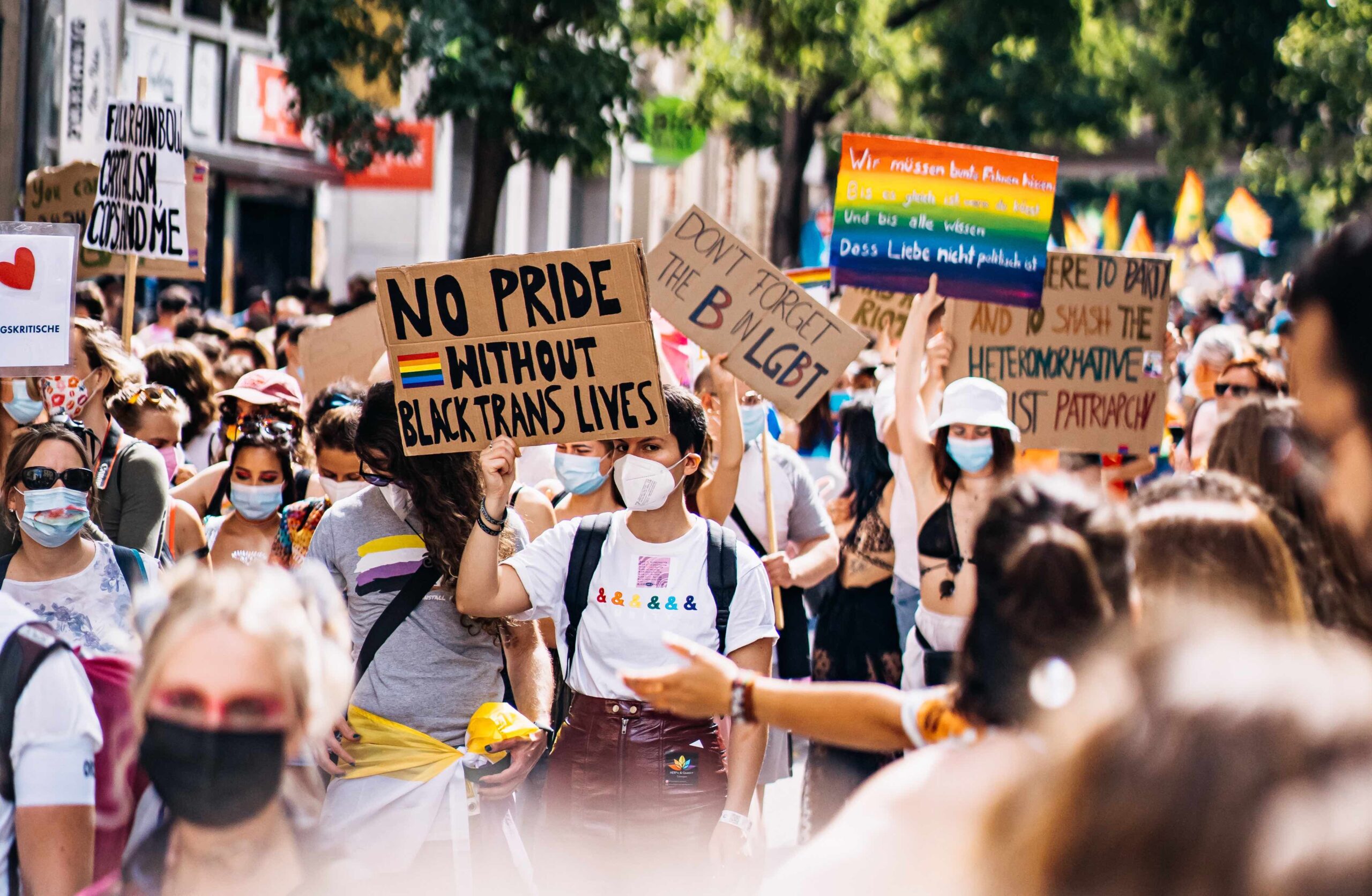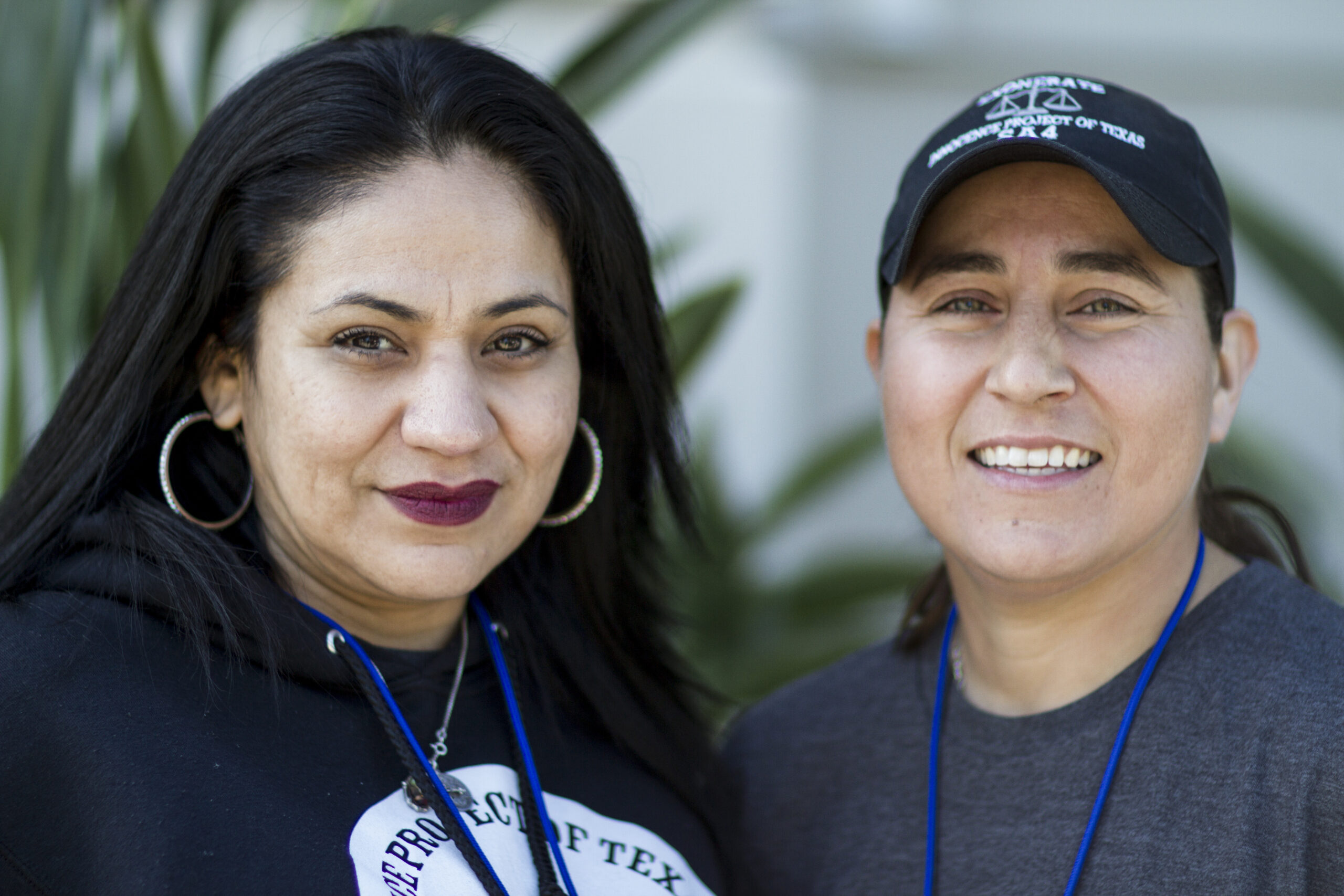LGBTQ+ People Are Vulnerable to Wrongful Conviction
In the case of Leigh Stubbs and Tami Vance, sexuality became a proxy for guilt.
06.27.22 By Christina Swarns
Earlier this month I had the pleasure of speaking with Valeena Beety, author of Manifesting Justice. Ms. Beety is a former federal prosecutor turned innocence litigator who is now a professor of law at Arizona State University. Manifesting Justice tells the story of two Mississippi women — Leigh Stubbs and Tami Vance — who, in 2001, were found guilty of drug possession and a violent sexual assault on their friend Kimberly Williams.
Prosecutors, with the help of the notorious odontologist Michael West, claimed that Ms. Stubbs and Ms. Vance were “drug addicts” that engaged in “sexually deviant” and aggressive acts against Ms. Williams. But reinvestigation by Ms. Beety and the Mississippi Innocence Project revealed that the women were wrongfully convicted, and that a major driver in their case was the fact that both identify as lesbians.
As we celebrate the LGBTQ+ community this Pride month, it is important to acknowledge that this is a community under attack, with dozens of states passing homophobic and transphobic bills that ban classroom instruction about sexual orientation or gender identity. Unfortunately, these laws are not new. “Historically in the United States, LGBTQ+ people have been characterized and labeled as ‘depraved and violent,’ and lesbians, specifically, have been portrayed as ‘menacing social types,’“ Ms. Beety said. These false and biased perceptions are propagated by laws that unjustly target LGBTQ+ people, including laws against cross-dressing (dating back to 1845 and enforced until the 1980s) and laws against sodomy (which was criminalized in the 1950s in all states). Though the anti-sodomy laws were declared unconstitutional in the 2003 Supreme Court decision, Lawrence v. Texas, their effects linger.
What’s more, LGBTQ+ people are overrepresented at every stage of the criminal legal system. “[Members of the LGBTQ+ community] are arrested, incarcerated, and subjected to community supervision at significantly higher rates than straight and cisgender people,” according to a Prison Policy Intiative report. In 2019, gay, lesbian, and bisexual individuals were 2.25 times as likely to be arrested in the prior 12 months than straight individuals, according to the National Survey on Drug Use and Health. Black trans people are especially vulnerable to harassment by the police. One in 5 trans people who have had police contact reported being harassed by police, including 38% of Black trans individuals, according to National Center for Transgender Equality and the National Gay and Lesbian Task Force.
The case of Ms. Stubbs and Ms. Vance reminds us that the LGBTQ+ community is also at risk for wrongful conviction. At their 2001 trial, the prosecution used their sexuality as a proxy for guilt, claiming that marks and bruises allegedly found on Ms. Williams’s body were consistent with those suffered by sexual assault victims. Although “examinations by numerous emergency personnel and other caregivers” found no bite marks on Kim’s body, Dr. West testified otherwise, asserting that his own examination uncovered bite marks and that homosexual assaults are more likely to include bite marks.
Even Dr. Rodrigo Galvez, a forensic pathologist who was called to testify for the defense stated, stated: “In homosexual crimes, all, they are very sadistic. Most violent crimes I’ve seen in my experience are homosexual to homosexual. They do what we call overkill. They do tremendous damage, tremendous damage…They’re more gory. The more repulsive crimes I’ve ever seen were homosexual to homosexual.”
This outrageous homophobia and Dr. West’s unreliable bite mark testimony, were weaponized against Ms. Stubbs and Ms. Vance to achieve a conviction. Both Ms. Stubbs and Ms. Vance were found guilty and sentenced to 44 years in prison without parole. But thanks to the hard work of Ms. Beatty and the Mississippi Innocence Project, in 2012, nearly 11 years after they were convicted, both were released on bond pending a retrial. In 2013, Ms. Stubbs and Ms. Vance pled no contest to a charge of possession of morphine — the Oxycontin pills that were in Ms. Williams’s purse — and were sentenced to time served. The prosecution dismissed the remaining charges. Ms. Stubbs’ conviction for drug possession was expunged in 2015.
In Manifesting Justice, Ms. Beety lays out a number of steps that the criminal legal system could take to better support and protect LGBTQ+ people. She notes that some progressive prosecutors are actively building relationships with LGBTQ+ nonprofits to investigate crimes against LGBTQ+ people. Ms. Beety also recommends that Conviction Integrity Units partner with LGBTQ+ nonprofits to identify people who have been victimized by the legal system and wrongfully convicted, like Black and Pink, which supports incarcerated queer people and people living with HIV in prison, and Who Speaks for For Me?, which centers incarcerated LGBTQ+ women of color and recognizes the “trauma to prison pipeline.”
According to Ms. Beety, “The most important point is visibility. LGBTQ+ identity is largely suppressed in the courtroom, unless it is raised alongside tropes of criminality, deviance, and sex work. Sexual orientation and gender identity are often used to elicit bias in jury members and to capitalize on harmful stereotypes, even when LGTBQ+ identity is irrelevant to the case. Queer visibility is important to challenge and re-envision who holds power in the courtroom.”
Therefore, efforts to educate jurors about implicit and explicit bias against the LGBTQ+ community are vital. Ms. Beety cited a study showing that, from 2003 to 2008, 45% of the jurors in America viewed homesexuality as an “unacceptable lifestyle.” When jurors bring homophobia, transphobia, or prejudice of any kind to their deliberations, it raises the risk of wrongful conviction. The states, like Washington and California, that have changed the rules for peremptory challenges to eliminate racial bias in jury selection stand as examples of the kinds of reforms that can also be adopted to address LGBTQ+ bias.
Ultimately, Ms. Beety’s book offers not only a powerful reminder of the very real homophobia and transphobia that plagues our system, but also a roadmap — including specific policies — to eradicate it and move towards a more just criminal legal system.


Leave a Reply
Thank you for visiting us. You can learn more about how we consider cases here. Please avoid sharing any personal information in the comments below and join us in making this a hate-speech free and safe space for everyone.